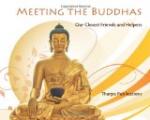HUMANITY.
Turn, turn thy hasty foot aside,
Nor crush that helpless worm!
The frame thy wayward looks deride
Required a God to form.
The common Lord of all that move,
From whom thy being flowed,
A portion of his boundless love
On that poor worm bestowed.
Let them enjoy their little day,
Their humble bliss receive;
Oh! do not lightly take away
The life thou canst not give!
T. Gisborne.
ANTS, BEES, AND WASPS.
Ants, bees, and wasps belong to the same family of insects. The ant, to begin with the smallest, is a good proof that size has little to do with intelligence.
These little people, as King Solomon said of them long ago, “are exceeding wise.” A long chapter might be filled with an account of the wonderful things they do. In this country there are ants who are farmers. They plant their fields, keep them carefully weeded, and gather each year the seed for the new crops. They make roads, build bridges, and fashion wonderful houses with underground storerooms and galleries. If their harvest gets wet, it is brought out to dry on the first sunny day, and then carried back again with the greatest pains.
Other ants are master-builders and make elaborate houses of more than forty stories. These houses are made of bits of stick and straw. Some ants are soldiers, others are gardeners, while still others are famous bridge-builders. The red ants make slaves of black ants and become very dependent upon the faithfulness and industry of their servants. Many ants keep as cows the small green plant-lice on the rose-bushes. These tiny green cows fill themselves full of a sweet juice which they make from the plant-leaf. The little people like the sweet juice and have found out that they can get it by stroking the cows. So they keep herds of fat cattle and often mount guard round the branch or tree where their cows are feeding.
Ants have a keen sense of smell and a wonderful way of talking to each other by touching their antennae. They must have a complete set of signals, for they are able to carry on a long conversation.
How do we know so much about them? Wise men have spent years in studying their ways. There was a blind Swiss naturalist, named Huber, who, with the aid of his servant, was able to learn more of ants and their doings than any one had dreamed of before. It was Huber who found out that ants go to war and make slaves. In England another famous observer noticed that ants knew and welcomed each other after ten and twelve months of separation.
It would be interesting to know what the ants think of us, who in some ways are no wiser than themselves. How blundering and clumsy we must seem when with careless feet we crush millions of the innocent dwellers in their underground cities! Surely we might try not to disturb the little people in the wonderful homes they have made.




